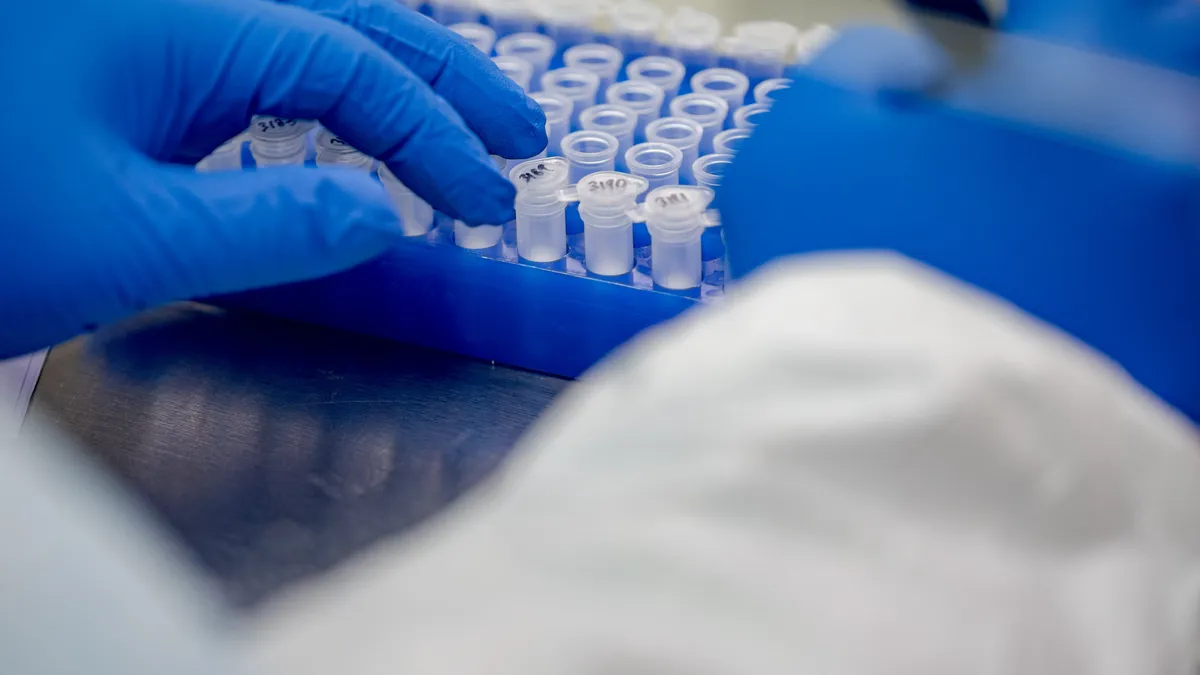Dive Brief:
-
The U.K. is creating a platform to evaluate the effectiveness of coronavirus tests in real-world healthcare settings including hospitals, general practices, and care homes.
-
In a statement published Wednesday, researchers said the program could prevent the “many failures and safety issues” that have happened when tests have come to market without a “proper focus on end-user needs.”
- The hospital-based arm of the study will assess 10 to 20 new COVID-19 tests the healthcare service has identified as high priority, including diagnostics designed to deliver results at the point of care in minutes, such as Abbott’s ID NOW.
Dive Insight:
The rapid proliferation of SARS-CoV-2 diagnostic and antibody tests is making it difficult for healthcare systems to choose the best tool for a particular situation. While tests are coming to market backed by laboratory-based studies on their specificity and sensitivity, they can often perform differently in real-world settings, as happened with Abbott’s ID NOW. In addition, comparisons between data generated in separate studies may fail to elucidate the pros and cons of rival products.
Those factors have led a consortium of U.K. funding bodies and research institutions to establish a single route for evaluating the performance of new tests in community healthcare settings and hospitals. The initiative, called the COVID-19 National DiagnOstic Research and Evaluation Platform (CONDOR), is expected to inform comparative evaluations of coronavirus tests.
“The CONDOR platform will put the new tests through their paces. The best ones can then be chosen for deployment in healthcare settings, care homes and the community, boosting our ability to detect and control the virus that causes COVID-19,” Fiona Watt, executive chair of the Medical Research Council, said in a statement.
Details of the tests the U.K. will evaluate are yet to emerge, but the researchers leading the hospital arm of the study, called FALCON, have shared some information about the breadth of their program and type of tests it will evaluate. FALCON will assess 10 to 20 high priority tests at around 30 U.K. hospitals starting this month.
“While a new diagnostic test might work well in a lab under controlled conditions, there are many different factors that could make it less accurate when you take that test out of the lab and into the real world," said Gail Hayward, FALCON co-primary investigator and deputy director of the National Institute for Health Research's Community Healthcare MedTech and IVD Co-operative, in a written statement.
The initiative could lead to the use of tests that deliver results within minutes, according to Rick Body, co-primary investigator on FALCON. Abbott’s ID NOW delivers results in minutes, as does a Cue Health test that received FDA emergency use authorization earlier this month. Equipped with such a test, healthcare professionals could accelerate decisions about patient care, including whether to put a person on a COVID-19 ward.
Another focus area for the research program is antibody tests. Specifically, the researchers want to track people who test positive for antibodies against SARS-CoV-2 to learn whether they become reinfected with the virus.
The program also has a laboratory-based component that will validate molecular point-of-care tests and antibody assays against reference diagnostics. That work, which echoes an initiative underway at FDA, will provide independent validation of industry data.
The U.K. National Institute for Health Research is running a webinar for diagnostic companies interested in CONDOR next month to explain how the program is prioritizing tests.












